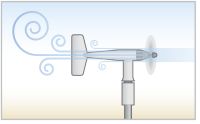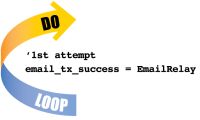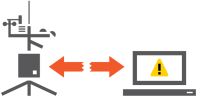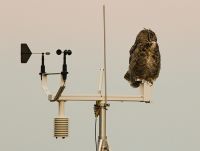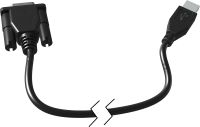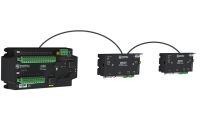Troubleshooting Topics Your source for troubleshooting-related articles
Displaying 1 - 20 of 27 articles
What You Should Know About Our New Training Option
Author: Jacob Davis | Last Updated: 09/10/2024 | Comments: 2
The Campbell Scientific Learning Center is launching as a third training option, bringing self-paced learning to our customers. I am excited for this opportunity to expand our training availability beyond our current offerings: live, in-person training and live, online training. I hope you can take advantage... read moreA Closer Look: Resolving Dam Data Discrepancies
Author: Eric Schmidt | Last Updated: 03/05/2024 | Comments: 0
Did you read our Southwest: Solving the Mystery of Erroneous Dam Monitoring Data case study? Want to get some more details? In this article, we’re going to take a closer look at that case study. If you haven’t read the case study yet, please do... read moreTips to Troubleshoot and Optimize Large RF Networks: Part 3
Author: Nathanael Wright | Last Updated: 01/02/2024 | Comments: 0
Here is our final blog article in our three-part series on troubleshooting your radio frequency (RF) networks. In this article, I’ll share with you four more tips (11 through 14). If you missed parts 1 and 2 or want to review them again, here are... read moreTips to Troubleshoot and Optimize Large RF Networks: Part 2
Author: Nathanael Wright | Last Updated: 12/20/2023 | Comments: 1
In this blog article, I’ll share with you the next five tips (6 through 10) that you can use to help troubleshoot your radio frequency (RF) networks. This is the second article in our three-part series. If you missed my first article or want to... read moreTips to Troubleshoot and Optimize Large RF Networks: Part 1
Author: Nathanael Wright | Last Updated: 10/31/2023 | Comments: 0
In this blog article, and the next two in the series, I’m going to share with you some tips you can use to help troubleshoot your radio frequency (RF) networks. In large RF networks, it can be challenging to achieve reliable spread-spectrum radio communications. (For our... read moreHow to Get Accurate Vibrating Wire Measurements with Long Cable Lengths
Author: Nathanael Wright | Last Updated: 10/17/2023 | Comments: 0
Typically, when you use long cable lengths for your vibrating wire measurements, you experience a weaker signal with a greater chance of interference. So, how do you overcome this challenge and improve your measurement quality? Keep reading to find out. At Campbell Scientific, our vibrating wire... read moreUse VSPECT® to Verify: Bad Sensors or Bad Data?
Author: Jacqalyn Maughan | Last Updated: 04/06/2023 | Comments: 0
Have you ever thought your bad vibrating wire sensor measurements were caused by erratic or erroneous data? You may be surprised to learn that data issues may not be the cause. If you are using a data-acquisition system other than one of the Campbell Scientific... read moreTroubleshooting Vibrating Wire Piezometers
Author: Nathanael Wright | Last Updated: 03/28/2023 | Comments: 0
Campbell Scientific vibrating wire measurement hardware, with our patented VSPECT® technology, offers a distinct advantage over all other vibrating wire measurement systems. Unlike non-Campbell Scientific vibrating wire interfaces that use pulse counting to derive vibrating wire frequency, Campbell Scientific's VSPECT vibrating wire measurement products use spectral... read moreEasily Diagnose CELL2XX Cellular Modem Connection Issues
Author: Nathanael Wright | Last Updated: 01/12/2023 | Comments: 2
Campbell Scientific’s CELL2XX cellular modems (CELL205, CELL210, CELL215, CELL220, and CELL225) are commonly used as a low-power alternative to the many industrial cellular solutions available on the market today and are built to easily interface with all Campbell Scientific data loggers and data-acquisition systems. Occasionally,... read moreHow to Test COM Ports and Short Haul Modems
Author: Bruce Smith | Last Updated: 04/15/2021 | Comments: 2
Has an electrical surge or other event made you concerned that your COM port or short haul modem may not be operating properly? Do you know how to test for this? In this brief article, we’ll look at some simple tests you can perform to... read moreHow to Obtain Vibrating Wire Measurements in Environments with High Electromagnetic Noise
Author: Timothy Jeppsen | Last Updated: 10/07/2020 | Comments: 0
In 1997, I had my first introduction to using vibrating wire piezometers to measure groundwater fluctuations. A large engineering firm was monitoring water level to ensure that construction of a large pipeline through the San Bernardino Mountains was not intruding on the groundwater. I was... read moreRelative Humidity: To Average, or Not to Average?
Author: Dirk Baker | Last Updated: 01/30/2020 | Comments: 2
Have you ever been told not to average relative humidity (RH)? Have you ever created a data logger program with Short Cut and noticed that it does not allow you to average RH when you generate your data table? Do you know why? In this blog... read moreSuccessfully Connect Your Retired Data Logger to a PC
Author: Jacob Davis | Last Updated: 12/19/2018 | Comments: 0
Have you experienced a scenario similar to this one? You have an automated weather station with a retired Edlog data logger (such as the CR10X), which has been running great for 20 years. Recently, the data logger stopped transmitting data to your server, so you... read moreWhy Do Variable Wind Speed Readings Occur with a Constant Wind?
Author: Jacob Davis | Last Updated: 01/31/2018 | Comments: 4
At some point, you may have watched the real-time wind readings from your data logger and seen the wind speed bouncing back and forth. Then, you probably wondered if it really was that gusty outside. In many cases, what you are seeing is the resolution... read moreUsing Loops in CRBasic to Prevent Unnecessary Skipped Scans
Author: Gary Roberts | Last Updated: 05/31/2017 | Comments: 2
Maybe you’re like me when it comes to skipped scans. I have always disliked seeing skipped scans in my data loggers. I have been trained to watch out for them and do my best to write my CRBasic programs in a way that makes them... read moreOne Helpful Method to Diagnose a Modbus Communication Problem
Author: Paul Smart | Last Updated: 03/08/2017 | Comments: 6
Have you ever set up a Campbell Scientific data logger as a Modbus server and discovered that your data was not arriving at your SCADA system as you expected? You may have quickly realized two things: troubleshooting the communication problem is not an easy task,... read moreHow to Prevent a Program Update from Causing a Loss of Communication
Author: Robert Hyatt | Last Updated: 11/10/2016 | Comments: 5
Imagine that you have a data logger station three hours away that gathers your measurement data. To physically get to your station, not only do you have to drive for three hours, but then you have to hike for an hour up a snow-covered mountain. A... read more6 Tips to Protect Your Weather Station from Birds
Author: Robin Deissinger | Last Updated: 05/25/2016 | Comments: 0
You’ve got your weather station set up and running, your data is coming across just fine, and then a bird decides your station is a wonderful place to make a home. That’s great for the bird, but not so great for the performance of your... read moreHow to Handle Common Issues with USB to RS-232 Adapter Cables
Author: Jacob Davis | Last Updated: 01/27/2016 | Comments: 12
Have you had difficulty using a USB to RS-232 adapter to connect your RS-232 device to a computer? If so, you are not alone. Our customers frequently encounter issues with these adapters. In this article, I’ll briefly discuss the origin of these issues and provide... read more4 Tips to Successfully Run an MD485 Network with Extreme Cable Lengths
Author: Andrew Sandford | Last Updated: 12/23/2015 | Comments: 0
Do you have a network of devices, connected using MD485 interfaces, so spread out that extremely long cables are required? Are you worried that the distances, and resultant cable lengths, may be causing communication problems? In this brief article, we’ll look at four tips that... read more






















